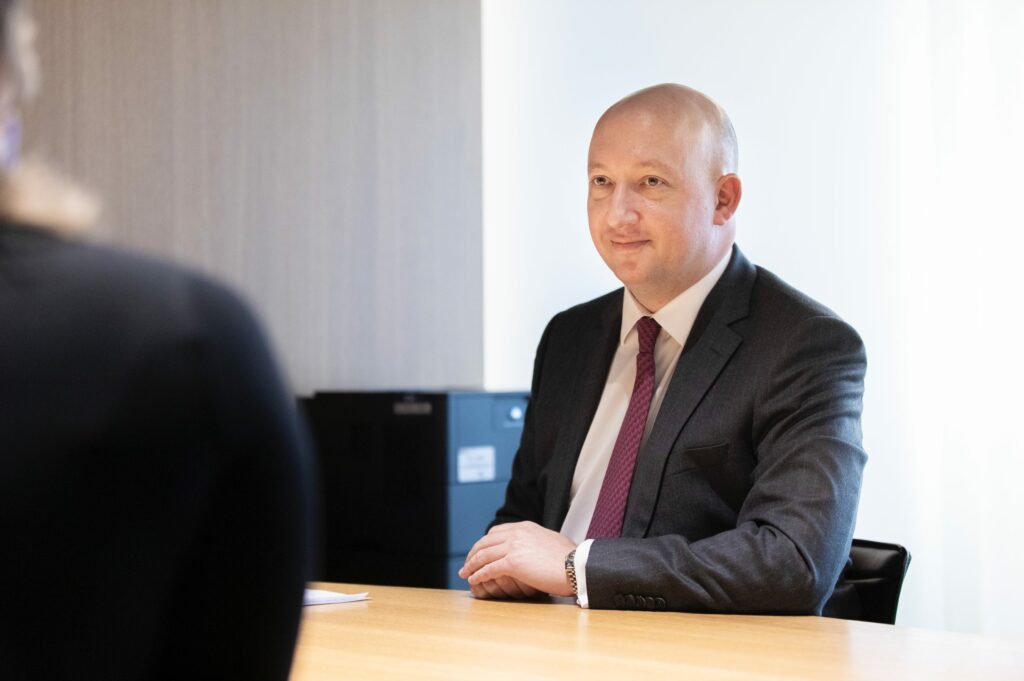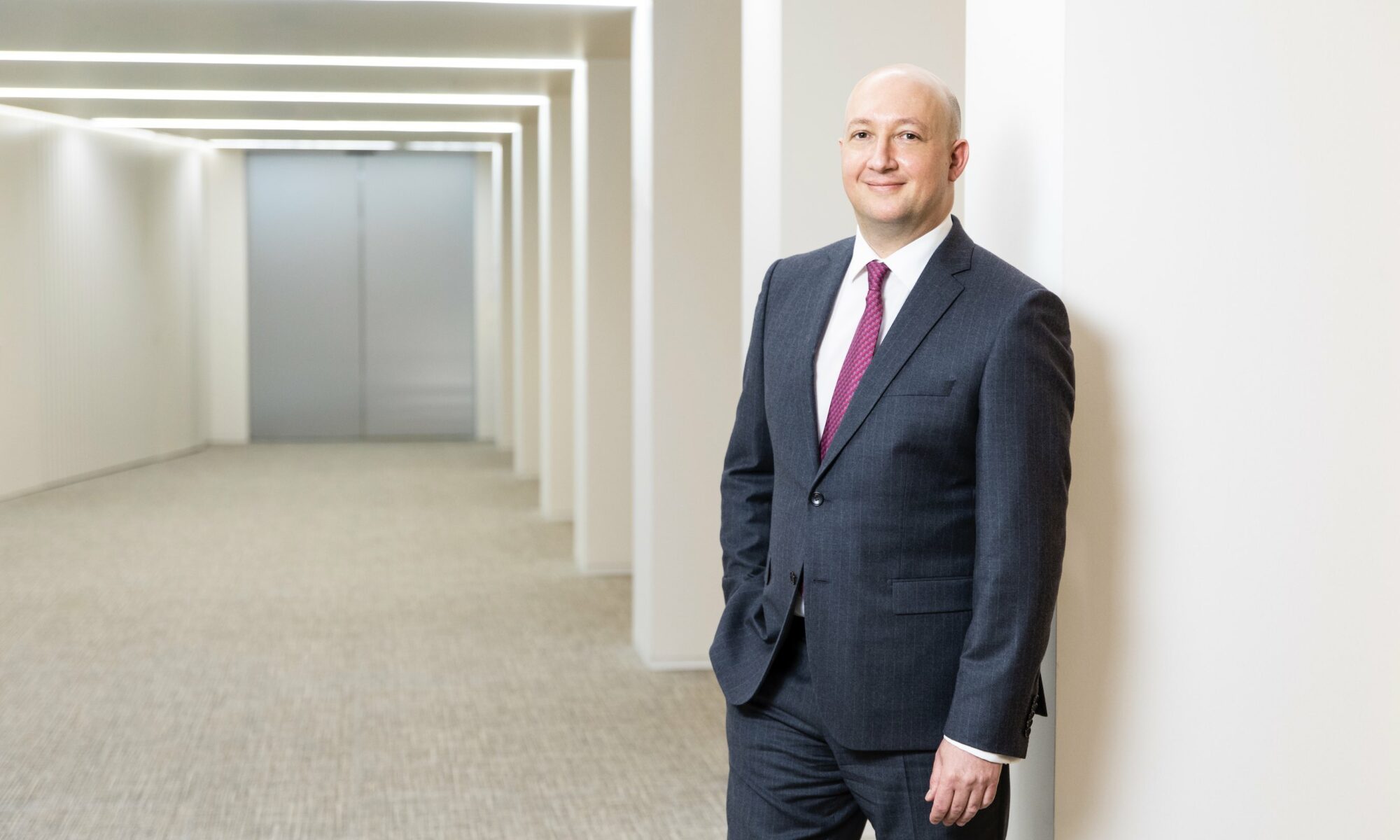Private banking strategies in times of crisis
As a result of the crisis and clients’ changing priorities, the private banking sector has had to adapt the way it communicates and the services it offers its clients. In wealth management, proximity and personalised advice is more important than ever in the era of social distancing. Cédric Weisse, Head of Retail, Affluent & Private banking, discusses trends and challenges in the sector in response to the crisis.
How has the healthcare crisis changed your relationships with clients?
Of course the way we interact with clients has changed as a result of the crisis. Whereas previously we tended to prefer direct or telephone contact, we have quickly come to rely on powerful digital tools as well. Our aim was to make ourselves as available as possible despite the healthcare situation, and ultimately we managed to strength our ties with clients whilst still guaranteeing everyone’s safety. Of course it’s always tricky to negotiate a crisis, but it forces us to question our behaviour and to think outside the box.
We used the time spent in lockdown or with travel restrictions to reflect on our aspirations, projects, and the management of our assets.
Has the way we manage our assets and investments also changed?
Yes and no. No in the sense that the core of our business and the range of services we offer have not changed radically. Yes to the extent that the trend we have observed over the last few years accelerated as a result of the crisis, namely clients becoming more involved in the management of their assets and investments. We all used the time spent in lockdown or with travel restrictions to reflect on our aspirations, projects, and the management of our assets. And we each realised the importance of spending more time looking after our assets in order to achieve or protect the things we hold dear.
Today’s environment is constantly changing and we need to be more adaptable and flexible than previously in wealth management. This pandemic overturned many of our certainties and preconceptions. Proper support is more crucial than ever.
What are clients’ main priorities today?
In the current environment, clients’ main concerns are to protect the assets that they have built up and to learn how to manage their liquidity in the best way. Whilst the long and medium-term outlook remains crucial, there is greater demand for swift short-term reaction since this crisis. In a world where everything is changing so quickly, clients want rapid responses, even if some solutions can require time. We do our very best to deliver these to our clients.
Greater use of digital tools represents one aspect of this response aimed at improving reaction times. This has three advantages. Firstly, these tools provide clients with greater autonomy for some transactions. Secondly, they represent an additional communication channel with the bank so we can intensify our exchanges with clients on a flexible basis. And lastly, they provide all the safety guarantees necessary, as regards both confidentiality and health issues.

More than ever, crises highlight the importance of having the right support and advice.
Is it a good idea or a bad idea to invest during a crisis?
Crises are always ambivalent times for investors. On the one hand, they result in sometimes rapid price corrections and high volatility, but usually, they also offer opportunities. So it would be a mistake to do nothing and ignore these opportunities, but diving in head-first is not the right approach either. More than ever, crises highlight the importance of having the right support and advice. There are different ways of investing and each client must decide with their private banking adviser the type of support they want with their investments.
What sectors would you recommend to retail investors?
My advice is to talk to your private banking manager, establish your investor profile and carry out a full wealth assessment. This provides the basis for a response to suit each specific client.
Every case is different, especially in private banking where everything should be bespoke. There are no general solutions; they are based on each client’s personal expectations, goals, risk aversion, investment horizon, values and aspirations. For example, a private banking manager’s advice to an older person looking for assistance with estate planning will be very different to that given to someone wanting to leverage their assets in order to make a major acquisition.
Of course, a team of investment experts selects and publishes our stock picks and strategies for dedicated vehicles. Our clients have access to this research, which covers a range of issues, not just sectors. For example, we increasingly aim to promote investments that are more socially responsible and also take other key criteria such as innovation into account.
What’s the best attitude to adopt to manage my assets successfully?
The first thing you should do is to properly define your goals and investment horizon, and to consider the diversification of your investments. You should definitely set aside your emotions, avoid going overboard on certain topics and keep calm in all situations. We work alongside our clients to help them take the decisions that suit the situation. In private banking, we set up bespoke mandates that perfectly match the requirements identified and the level of support desired. In advisory management, we work on a partnership basis, involving our clients, working with them and identifying innovative and personalised investment solutions. With this model, clients can rely on expert recommendations whilst making their own investment choices. One example among others is investment proposals that include an exposure to the Chinese market. A discretionary management mandate offers a different type of service, where you mandate the bank to manage your assets in your name and on your behalf, in line with your pre-defined investment strategy.
What will the challenges be for wealth management in the future?
We will have to face a number of challenges. Firstly, we need to continue to find new ways to communicate with clients. An increasing number of meetings are held by video conference, and we offer webinars to replace many events that we used to organise in the past. Whilst we hope to be able to offer in-person events soon, we also intend to make our virtual events more interactive, to allow our clients to communicate with our experts more effectively.
An additional challenge is rolling out the measures needed to ensure compliance with ever-increasing regulatory requirements, whilst remaining reactive and able to respond quickly with the solutions our clients expect. Although the regulatory burden is real, it is also important to recognise that operating in a regulated environment is an advantage since it offers protection for both clients and staff members.
And the final challenge is the pursuit of excellence. In response to an ever-changing world and clients who are entitled to expect a high level of service, we must be capable of constantly acquiring new knowledge and expanding the range of our expertise. The situations we encounter are increasingly varied, and the issues more and more sophisticated. For example, if we consider the management of inheritance issues, we have to deal with an increasingly diverse range of assets located across several regions. Family members are often domiciled in different countries. So we need to be experts in cross-border tax issues and have strong connections with the right lawyers in order to provide the most appropriate response. And it is even more complex for blended families. Not only is the required level of expertise constantly rising, but we also need to know how to listen properly, to empathise in sometimes sensitive situations, and to talk frankly, which is indispensable to establishing a long-term relationship of trust. The crisis challenges us to be even better!


 Mortgage
Mortgage Personal loan
Personal loan Savings
Savings